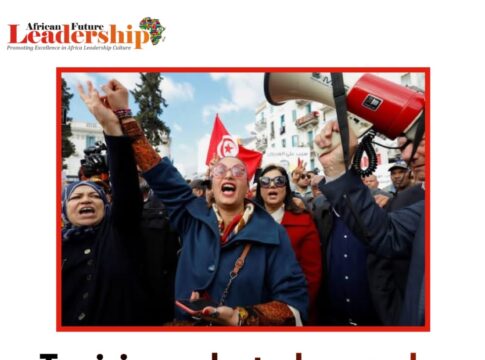Tunisia announced that only 11% of voters cast ballots in Sunday’s parliamentary elections, with critics of President Kais Saied saying the empty polling booths were evidence of public disdain for his intentions and his grip on power.
The head of the electoral commission, over which Saied assumed ultimate authority last year, gave a provisional turnout of 11.3% for Sunday’s runoff votes.
During December’s first round, the official turnout was only slightly lower, at 11.2%.
“Today Tunisians issued a final verdict rejecting Kais Saied’s process and elections,” Nejib Chebbi, head of the main opposition coalition, the Salvation Front, told a news conference.
Economic decline in Tunisia, where some basic goods have disappeared from shelves and the government has cut subsidies as it seeks a foreign bailout to avert bankruptcy, has left many disillusioned with politics and angry with their leaders.
READ MORE: The world must ‘work together’ to end food poverty in Africa, Irish President says
“We don’t want elections. We want milk and sugar and cooking oil,” said Hasna, a woman shopping in the Ettadamon district of Tunis on Sunday.
The newly configured parliament has had its role shrunk as part of a political system Saied introduced last year after a power grab in 2021 that grants the presidency nearly absolute power.
About 887,000 voters cast ballots from a total electorate of 7.8 million, the electoral commission said. Final results were not expected on Sunday. The main parties boycotted the vote and most seats are expected to go to independents.
“I’m not interested in elections that do not concern me,” said Nejib Sahli, 40, passing a polling station in the Hay Ettahrir district of Tunis.
Independent observers, including the local Mourakiboun group, have questioned official turnout figures, accusing authorities in many districts of withholding data they rely on to monitor the election’s integrity.
The commission denied this and said polling station officials had been too busy to cooperate with monitors.
Opposition groups have accused Saied of a coup for shutting down the previous parliament in 2021, and say he has trashed the democracy built after Tunisia’s 2011 revolution – which triggered the “Arab Spring”.
Saied has said his actions were both legal and necessary to save Tunisia from years of corruption and economic decline at the hands of self-interested political elite.
Though his new constitution passed in a referendum last year, only 30% of voters took part.




